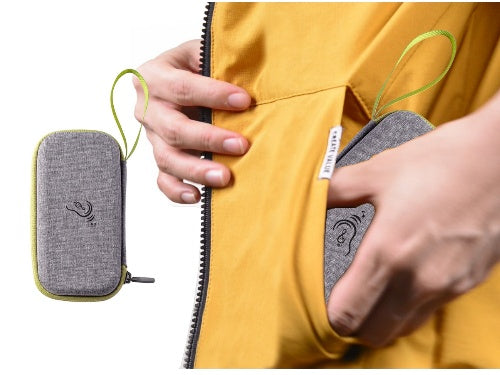Hearing aids are invaluable devices that enhance the quality of life for individuals with hearing loss. To ensure they continue to perform optimally and last longer, proper usage and maintenance are essential. Here’s a guide on how to use and care for your hearing aids effectively:
1. Handling and Insertion:
- Clean Hands: Always start with clean, dry hands to avoid transferring dirt or oils to your hearing aids.
- Gentle Handling: Handle your hearing aids with care. Avoid dropping them or exposing them to excessive moisture or heat.
- Proper Insertion: Position the hearing aid correctly in your ear canal as instructed by your audiologist or hearing care professional.
2. Daily Care Routine:
- Cleaning: Use a soft, dry cloth or a special brush recommended for hearing aids to remove wax and debris from the device and earmold.
- Inspect Regularly: Check the microphone and receiver openings for wax buildup or debris. Clean these areas carefully using tools provided by your audiologist.
- Battery Care: If your hearing aids use disposable batteries, keep spares on hand. Rechargeable models should be charged nightly according to manufacturer instructions.
3. Avoid Moisture and Heat:
- Moisture Protection: Remove your hearing aids before showering, swimming, or using hair care products to prevent moisture damage.
- Store Properly: Use a hearing aid dehumidifier or storage case with a drying agent to absorb moisture overnight.
4. Handling Batteries:
- Battery Change: Follow the manufacturer's guidelines for changing batteries. Ensure the contacts are clean and dry before inserting a new battery.
- Dispose Properly: Dispose of old batteries according to local regulations, and never mix different battery types.
5. Professional Maintenance:
- Regular Check-ups: Schedule routine check-ups with your audiologist to ensure your hearing aids are functioning correctly and to address any concerns.
- Adjustments: Seek professional assistance for adjustments or repairs if you notice changes in performance.
6. Troubleshooting Tips:
- Check Connections: Ensure all parts are securely connected and free of debris.
- Replace Filters: If your hearing aid has filters, replace them as recommended to maintain sound quality.
By following these tips, you can maximize the lifespan and effectiveness of your hearing aids. Remember, proper care and maintenance not only preserve the device but also ensure you continue to enjoy improved hearing for years to come.
For personalized advice or further assistance, consult your audiologist or hearing care professional.




Leave a comment
This site is protected by hCaptcha and the hCaptcha Privacy Policy and Terms of Service apply.